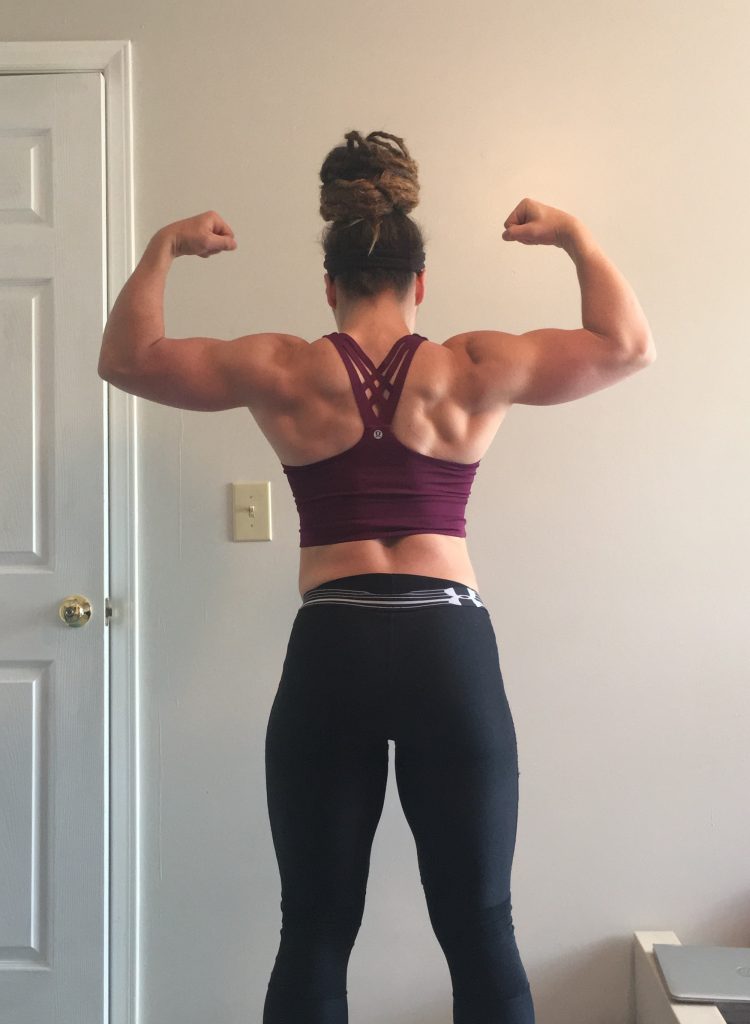Check out The “Eat What You Want” E-Book to understand nutrition better. With a built-in Macro Calculator, you will have all the tools necessary to getting your nutrition in check.
Check them out here: ⇒ “Eat What You Want”
==============================================
Fats Make You Phat
by Jacky Bigger, M.S.
Jacky is one of the best 63kg Weightlifters in the country. She is one of the top Mash Mafia Weightlifters, and she is a coach for MashElite.com. You can follow her on Instagram at: @a.little.bigger
If you’ve been following my mini macro series you’ve already read my articles on proteins and carbohydrates. If not, go back and take a look. My goal has been to provide some useful, simple information about nutrition that anyone can understand and begin to put to use in their daily lives. Hopefully you’ve learned some things so far. In today’s article we will be briefly be going over the 3rd and final macronutrient, fats. Now, just because I chose to write about fats last, doesn’t mean that it’s the least important of the three. In fact, they’re all an equally important part of our overall health and survival.

Fats by definition in the Merriam-Webster dictionary are “any of various compounds of carbon, hydrogen, and oxygen that are glycerides of fatty acids, are the chief constituents of plant and animal fat, are a major class of energy-rich food, and are soluble in organic solvents but not in water” two other definitions listed which don’t sound particularly appetizing are “animal tissue consisting chiefly of cells distended with greasy or oily matter” and “oily or greasy matter making up the bulk of adipose tissue and often abundant in seeds.” However, fats are quite delicious and provide flavor and satiety to our meals.
Not only are fats delicious, they are also an important source of energy for your body. During exercise carbohydrates are primarily the 1st fuel source used but during prolonged exercise or steady state activity the body uses fat and fat stores for energy. Fats are also needed to keep your hair and skin healthy; they are needed in order for your body to be able to absorb certain vitamins (A, D, E and K) and they are also an important part of brain and heart function. Fats take longer to break down in your stomach than carbs do, leaving us feeling fuller for longer. Fats have always been labeled as the “bad” macronutrient but as you can see fats are a very important nutrient needed by our body. Fats do not make you fat, as long as you’re eating the right kinds.
There are two different categories of fats. Saturated fats and unsaturated fats. Unsaturated fats are known as the “good” kind of fats. They typically come from plant sources such as avocados, olives and olive oil, nuts, seeds, peanut butter etc. When eaten in moderation they can help lower your cholesterol and prevent heart disease.
Saturated fats, the “bad” fats are found in animal products, meat, poultry, dairy and eggs. These fats can raise cholesterol, clog arteries and increase your risk of heart disease. The American Heart Association recommends that you keep your saturated fat intake to less than 7% of your overall daily calorie intake. So, to put it simply, we want to get most of our fats from plant sources, and little from animal sources. There is also a third type of fats, trans fats. There are naturally occurring trans fats that are found in small amounts in dairy and meat, but these are not the ones that we are concerned about. The artificial trans fats that are found in many processed foods and baked goods are the ones of concern and should be eliminated completely from our diet.

Although fats, if eaten in proper proportions, don’t make you fat, it can be very easy to over eat fats if you’re not careful. Fats are a very energy dense. They contain 9 calories per gram, as opposed to protein and carbohydrates that only have 4 calories per gram. This is one reason why fats have gotten such a bad rep in the past. So how much fat is the right amount? The 2015 Edition of the Dietary Guidelines for America says that fats should be no more than 20-35% of your daily calories. For a 2,000 calorie per day diet that would equate to 44 to 77g of fats per day.
Like carbs and proteins, there are lots of different sources. I’ve mentioned a few above, but I again wanted to leave a list of my favorite fat sources. When eating fats from animal sources, I again, recommend organic and grass-fed meats, and organic and cage free eggs. Here are some of my favorite fats.
– Peanut butter
– Coconut oil
– Avocado
– Bacon (in small amounts)
– Chia seeds
– Hemp hearts
– Cashews
– Sunflower seeds
– Pumpkin seeds
So that wraps up my macro nutrient mini-series. The information on my articles barley scratches the surface of all the information available out there about nutrition. I encourage you to continue to do your research, although my articles give some general recommendations, everyone is different. Like most things in the fitness world, there is no one size fits all prescription. Do experiments with your body, find out what foods your body responds well to and which you don’t. Proper nutrition can be the key to living a long and healthy life. Who doesn’t want that?
==============================================
Check out one of the Eat What You Want Online Teams:
• Eat What You Want (Everything Needed to Perfect Your Nutrition)
• Eat and Lift What You Want (Get Your Nutrition and Your Workout Perfected)
Check them out here: ⇒ ‘Team Eat and Lift What You Want’
